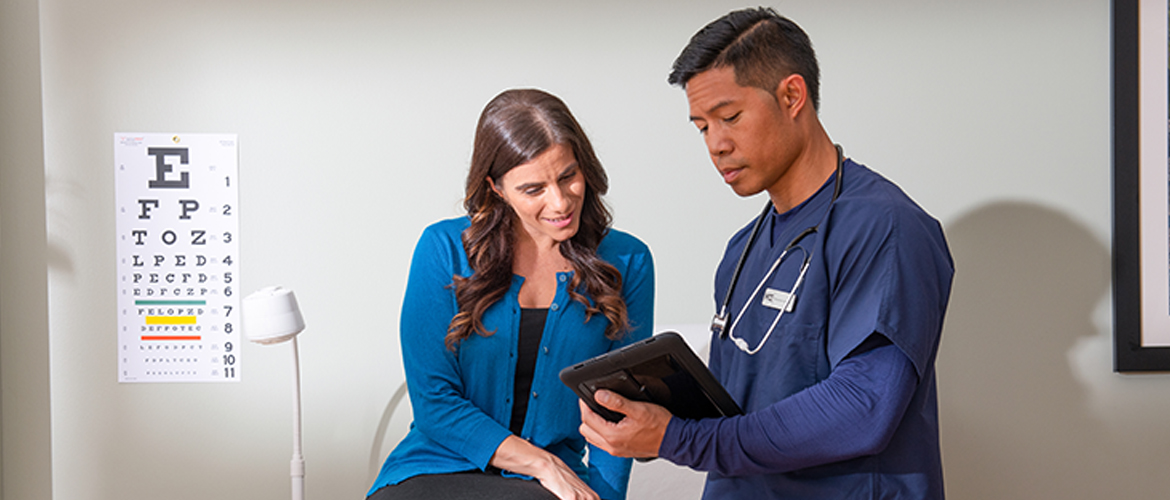What are STDs?
STDs are infections that spread from person to person most commonly through bodily fluids during sexual contact. It's also possible to spread STDs through hypodermic needles and objects like damp towels or wet clothing. There are more than 30 different bacteria, viruses and parasites that are known to be transmitted sexually.1 The most common of these include syphilis, gonorrhea, chlamydia and trichomoniasis – which are all curable – as well as hepatitis B, herpes simplex virus, HIV and human papillomavirus (HPV) – which are not currently curable.
STD Symptoms
Many STD symptoms can easily be confused with other issues, including yeast infections and urinary tract infections. Specific symptoms can vary depending on the type of STD, but keep a close eye out for these signs and symptoms:
- Painful urination
- Lower abdomen pain
- Pain during sexual intercourse
- Burning, itchiness or irritation around the genitals
- Rash, bumps, blisters or sores around the genitals
STD Symptoms for Men vs. Women
When it comes to STDs, there are some signs and symptoms that men and women should look for specifically.
Women should also look for:
- Vaginal discharge
- Menstrual bleeding or spotting between periods
Men should look for:
- Painful, swollen testicles
- Discharge from the penis
How Long Does it Take to Show STD Symptoms?
It can take less than two days or up to a month after exposure to the infection to show symptoms. Many STDs may be asymptomatic, or don't show obvious symptoms, which can make it difficult to know whether or not you should get tested. Whether you suspect you have an STD or not, it's important to get tested regularly – at least once a year, or more depending on your level of sexual activity.

How Long Do STD Tests Take?
If you are experiencing any signs or symptoms of an STD or suspect you may have contracted one, it is important to get tested as soon as possible. A MedExpress healthcare professional will evaluate your symptoms and ask questions about your sexual history to determine which test is right for you. Common types of STD tests include blood tests, urine tests, vaginal swabs, penile swabs and throat swabs (to check for an STD in the throat) and physical examinations.
At MedExpress, based on the providers evaluation and recommendations, we have the ability to test for the following conditions:
- Chlamydia (urine or swab)
- Gonorrhea (urine or swab)
- Trichomoniasis (urine or swab)
- Syphilis (blood)
- Ureaplasma (urine or swab)
- Mycoplasma (urine or swam)
- Actue Herpes Simplex (swab lesion)
- Herpes Simplex Previous Infection (blood)
All testing is sent to an independent lab. Patients may receive a bill from the independent lab, after processed by personal insurance company.
It's important to note that each infection has its own testing method, and some may require multiple tests to ensure an accurate diagnosis.
STD Treatment and Prevention
While many STDs are treatable with medications, most viral STDs, like herpes and HIV, can be only managed, not completely cured. Treatment of an STD will depend on the specific diagnosis. Most of the time, you'll be prescribed an antibiotic (for bacterial infections) or an antiviral (for viral infections). It's important to take these medications exactly as prescribed by your health care professional, and make sure to ask how long after treatment you should get retested.
While many STDs are treatable with medications, most viral STDs, like herpes and HIV, can be only managed, not completely cured. Treatment of an STD will depend on the specific diagnosis. Most of the time, you'll be prescribed an antibiotic (for bacterial infections) or an antiviral (for viral infections). It's important to take these medications exactly as prescribed by your health care professional, and make sure to ask how long after treatment you should get retested.
Abstinence is the best way to prevent the spread of STDs, but there are other steps you can take to stay safe. If you're sexually active, always use latex condoms. While not completely effective in preventing pregnancy or the spread of STDs, condoms are very effective if used correctly. Hormonal birth control methods – like the pill, shot, patch or ring – are not effective in preventing STDs. Finally, get tested regularly – at least once a year or more depending on your level of sexual activity.
At MedExpress, you can trust us with your STD testing and treatment needs. Just schedule an appointment or walk in at a time that's right for you, and you can expect to receive fast, compassionate urgent care from our friendly medical team.
References
1 World Health Organization (WHO): Sexually Transmitted Infections. Accessed January 22, 2020.
